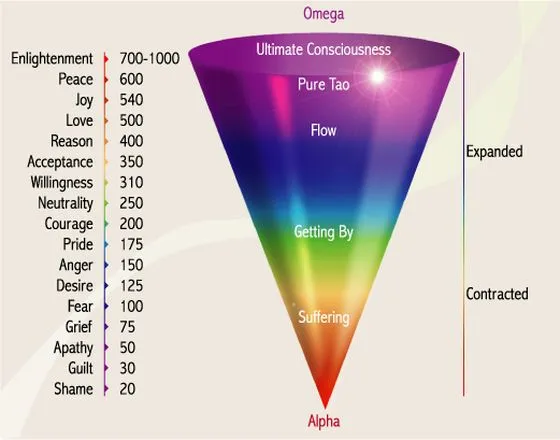Guilt, Shame, and Regret. While these are 3 distinct emotions, they are often interconnected and can coexist, adding fuel to each other’s fire. Generally, the emotions of guilt, shame, and regret are classified as self-conscious emotions, since they involve an awareness of your actions and behaviors. Ever toss and turn at night reliving memories of the past? If you take a moment to dissociate from the memory and look at the emotional charge behind it, you’ll usually find a variation of guilt, shame, or regret behind the memory. In this article, I will explore the psychological concepts behind why we experience these emotions and what to replace these uncomfortable emotions with instead.
Guilt, The Silent Saboteur
Guilt often sneaks into your life in stealth mode, waiting for the right moment to strike. It stems from a sense of violation against your moral compass, leaving you glued to the past. Guilt often involves a sense of responsibility for your wrongdoing and a desire to make amends. The weight of guilt when left unaddressed, can be like an anchor, dragging you down, keeping you in misery, so focused on the memory you aren’t able to see the larger picture.
Cognitive Dissonance is the psychological concept that explains guilt the best. You experience cognitive dissonance when you hold conflicting beliefs or attitudes. Guilt often arises from this dissonance, as your actions may contradict your internal moral standards. Resolving cognitive dissonance involves either aligning your actions with your beliefs or adjusting your beliefs to accommodate your actions (e.g. justifications, i.e. excuses). The main thing here is that you have to make a conscious decision on how you want to act and be ok with that decision.
So what to do instead
- Self-Forgiveness: To pull yourself out of the guilt spiral, you must first embrace self-forgiveness. Understand that being human means making mistakes and is actually a fundamental part of your growth.
- Reflection, Acceptance & Growth: Take time to reflect and observe the actions that led to the guilt without judgment. Acknowledge the mistake or lapse in judgment, and focus instead on the lessons learned. Identify how you can grow, improve, or make amends. Use the situation as an opportunity for personal development. It is through these lessons that your principles are forged. Read more about this here: article.
- Apologize: Finally, something so simple yet so difficult… say you are sorry. Whether that’s to yourself or somebody else that the guilt has arisen from. Taking responsibility can be a powerful catalyst for healing for all involved.
A technique I use with my clients that you can try at home when dealing with guilt:
Close your eyes and scan your body for where you feel guilt hiding in your body. Now really feel into it and visualize releasing the burden of that guilt from that area, giving yourself permission to use self-compassion to mend the wounds of your past.
Shame, The Shoulder Devil
Now Shame, unlike guilt which focuses on your actions, focuses on the self as a whole, it’s a more pervasive and intense emotion. It’s tied to your identity and produces a sense of worthlessness. Think of it as the shoulder devil whispering exaggerated lies about who you are. It’s job, to make you feel fundamentally flawed or inadequate.
Internalized Oppression is a psychological concept that explores how you can adopt and internalize societal prejudices, resulting in a negative self-perception. Shame can be seen as a manifestation of internalized oppression, where you incorporate society’s judgments into your self-concept, leading to feelings of unworthiness. This can be relevant from minority groups all the way to society’s view on sleeping around (men being praised where women are… well you know) or not being as educated as everyone else around you. Shame can arise as you absorb societal biases, impacting your sense of self-worth. The main takeaway here is, to practice discernment on whether the shame is coming from external or internal forces. Don’t allow the outside world to control your inside world.
So what to do instead
- Challenge Negative Self-Talk: Actively work to challenge and reframe negative thoughts about yourself. Replace self-deprecating talk with positive beliefs that highlight your strengths and accomplishments. I know self-deprecating humor is hilarious, I get it, I’m an Aussie, but it is seriously not good for you. It may start off as a joke, but eventually, you start to believe it.
- Seek Support: I understand the desire to keep things in and work through them yourself, but even Jesus had 12 disciples who helped him. Mind you, one betrayed him, so really 11. But still, find people who you can safely share your feelings with whether that be trusted friends, family, or a mental health professional. Sometimes you just need a different perspective to break a negative feedback loop.
- Cultivate Self-Compassion: When I was younger I thought being mature meant being hard on myself, oh how wrong I was. By practicing self-compassion and teaching yourself you deserve to be treated with kindness and understanding you can dispel shame. The antidote to shame is an unwavering belief in your worth. How can you do that without showing yourself some compassion first?

Regret, Navigating the Road Not Taken
Ahh Regret, your ‘trusty’ companion on this life journey. It knocks on the door and arises from the contemplation of roads not taken and choices left unexplored. While regret can serve as a compass for future decisions, dwelling on it excessively can imprison you in a cycle of longing and dissatisfaction. You run the risk of being stuck in the past from reliving all the turns you wish you had taken, thereby taking up precious space in your mind to embrace all the opportunities that lie ahead of you instead.
Counterfactual Thinking is a cognitive process where you mentally explore alternatives to past events, imagining “what might have been.” Cue romantic music playing in the background. Regret often involves dwelling on counterfactual scenarios, where you envision different choices or outcomes. AKA romanticizing the past and what could have been. This concept is crucial in understanding how regret influences decision-making and emotional well-being. There are two paths here. A) You embrace that regret and decide not to make the same mistake again, or B) You continuously dwell on your regrets which can paralyze you into not taking action, or taking action and repeating the same mistakes. Because what you focus on is what you’ll get. Basically, you can either choose to view regret as a guide or a jailer.
So what to do instead
- Acknowledge Feelings, but Avoid Rumination: Acknowledge the regretful feelings without getting stuck in a cycle of constant rumination. Understand that it’s natural to experience regret, but dwelling excessively on the past can hinder forward progress.
- Extract Lessons: Identify specific lessons or insights gained from the situation. Consider how you can turn these lessons into your principles which then turn into your values. More about that in this article.
- Set Future Goals: Use the energy of regret to set clear and actionable goals for the future. Channel the desire for improvement into positive steps, ensuring that your future choices align more closely with your values and aspirations. Every regret holds the potential for growth and resilience.

The Alchemy of Liberation
By releasing the heavy burden of Guilt, Shame, and Regret, you allow yourself the opportunity to step into self-forgiveness, acceptance, principles, values, self-compassion, growth, and ultimately wisdom. By understanding the impact of these emotions and how to alchemize them, you empower yourself to shape your life with more peace, purpose, and fulfillment. Also now that you understand the underlying cognitive processes at play, you can work towards self-awareness, acceptance, and ultimately, a higher level of emotional well-being. I find that by being able to label and understand the mechanics of emotions you can take away the emotional surge they produce to more effectively understand what those emotions are trying to tell you.
